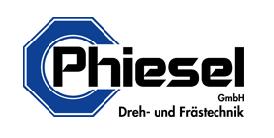Terms of Delivery and Payment at Phiesel GmbH
1. Conclusion of Contract and Contractual Content
The supplier’s written order confirmation in conjunction with these terms of delivery and payment holds decisive significance for all contracts. The purchaser’s purchasing conditions are not binding upon the supplier, even if the latter doesn’t explicitly object and the purchaser doesn’t expressly endorse the supplier’s delivery and payment conditions. By accepting the delivery at the latest, the customer concurs with the order confirmation and these terms of delivery and payment.
Supplementary agreements necessitate written confirmation from the supplier. The customer’s contractual rights can only be transferred with prior consent from the supplier. The ineffectiveness of individual sections of the contract does not impede the legal validity of the remainder of the contract. We retain the right to replenish raw materials; hence, the supplier is obligated to deliver only to the extent that it’s feasible for them to restock the necessary raw materials at the prices valid on the day of the order confirmation.
2. Packaging, Transfer of Risk
Packaging is billed at cost price. Returns are not possible. The risk is transferred to the customer, even in cases of carriage-paid delivery, once the shipment has departed the company premises. If the goods are taken back for reasons not attributed to the supplier, the customer assumes all risk until the goods are received by the supplier.
3. Pricing
All prices are subject to statutory value-added tax.
In cases of material price increases and wage hikes occurring between the submission of the offer and the placement of the order, the supplier reserves the right to modify the price upon order confirmation. Material price increases and wage hikes that arise between order placement and delivery may be passed on to the customer.
4. Acceptance
If the goods are required to be inspected according to specific conditions, acceptance will occur at the supplying facility. Material acceptance costs are covered by the supplier, while personal travel and subsistence expenses for the acceptance officer are covered by the customer. If acceptance at the delivery works is waived, the goods are considered accepted as soon as they depart the delivery works.
5. Liability for Defects
Deviations in weight and quantity of up to 10{5c4e36c7ee88c4683ab5f7750fc331f7861f51dcea1193ee613e58e280a0f0cb} are permissible upon delivery, depending on the product type.
DIN tolerances are applicable to complaints concerning DIN standardized goods. Complaints must be promptly made upon identification of the deviation, but no later than two weeks after receiving the goods, without prejudice to any earlier statutory obligation to report defects. Liability for hidden defects is also excluded after 3 months from the date of delivery. Should the customer fail to provide samples of the disputed goods immediately upon request, all defect claims will become void. Regardless of any previous statute of limitations, defect claims become statute-barred 4 weeks after the rejection of the notice of defects. Handling a notice of defects in a practical manner does not constitute a waiver of compliance with the provisions of this clause. If the complaint proves valid, a replacement will be provided free of charge and delivered to the original receiving location, but in the case of quality defects, only if the faulty material accounts for over 5{5c4e36c7ee88c4683ab5f7750fc331f7861f51dcea1193ee613e58e280a0f0cb} of the delivered quantity and the defective items are returned. The replacement will be done piece by piece. If blanks or material were supplied by the customer for processing, the same must apply to replacement deliveries. Additional claims such as rescission, reduction, compensation for damages, lost profits, contractual penalties, wages, etc., are not accepted. No rights can be inferred from defects in partial deliveries regarding the remaining partial deliveries. The supplier reserves the right to decline defect rectification if the customer does not fulfill their obligations.
6. Property Rights of Third Parties
If deliveries are carried out based on drawings or other information provided by the customer and such deliveries infringe upon the property rights of third parties, the customer shall indemnify the supplier against all claims. If the supplier does not receive an opposing notification from the customer within 8 days from the order confirmation at the latest, the supplier will assume that the requested versions are free from property rights.
7. Delivery Acceptances and Call-off Periods
Delivery times determine the time of delivery ex works and are indicative only. A reasonable extension of the delivery times applies if the customer fails to meet their obligations, or if delivery is delayed due to unforeseen events beyond their control, extraordinary occurrences at the supplier’s works, sub-suppliers, or transport companies. Claims for damages due to non-performance or delayed performance are not permissible. If the hindrances persist for more than a month, or if operations are halted at the supplier’s works, sub-suppliers, or due to war, mobilization, riots, or occupation by foreign powers, the supplier holds the right to withdraw from the contract. In the absence of specific agreements, the supplier is entitled to partial deliveries. The customer cannot derive any rights regarding the remaining partial deliveries from delays in partial deliveries. If an acceptance period has been stipulated, the supplier is not bound to deliver beyond that period. Call-offs and specifications for individual partial deliveries must occur at regular intervals and in quantities and timing that facilitate proper manufacturing and delivery within the contractual timeframe. In the absence of a specified allocation deadline, a three-month period is assumed. If the order is not called up or specified at all, or if not done in a timely manner, the supplier, following the establishment of a deadline, has the right to demand compensation or withdraw from the contract.
8. Retention of Title
The supplier maintains ownership of the goods they have delivered until all claims against the customer, arising from the current or future business relationship, have been settled. The customer is required to keep and label the goods subject to retention of title separately. The customer may only sell the delivered goods within the regular course of business and either for cash payment or under retention of title. Assignments for security, pledging, or other dispositions that jeopardize the supplier’s rights are not allowed. The customer hereby assigns, as collateral, any claims arising from the resale or any other legal grounds pertaining to the reserved goods to the supplier, for an amount equal to the value of the resold goods or the sale proceeds if they do not reach the value of the goods. In the event of the customer selling the reserved goods alongside other items, the customer assigns the full purchase price claim for the reserved goods. If such a sale occurs for a lump sum, the customer assigns the purchase price claim for the reserved goods at the value specified in this purchase. While the customer fulfills their obligations, this assignment functions as a silent assignment, granting the customer authorization to collect the claim. The customer is required to segregate and separately account for the amounts received from the assigned claims. If the security’s value exceeds the supplier’s claim by over 20{5c4e36c7ee88c4683ab5f7750fc331f7861f51dcea1193ee613e58e280a0f0cb}, the customer has the right to request the release of the security. The customer must promptly notify the supplier if third parties gain access to the goods subject to retention of title or the assigned claims, and furnish the necessary documents for intervention. The costs of the intervention are borne by the customer. The assertion of the retention of title and a demand for return, in accordance with Section 9, do not constitute withdrawal from the contract.
9. Terms of Payment
Unless otherwise agreed, the supplier’s invoices are to be settled within 30 days from the date of the invoice, without any deductions. The customer is not authorized to withhold or offset payments, even in the case of complaints. Bills of exchange will only be accepted with prior agreement, and as a form of payment, subject to the possibility of discounting. If payment is made through bills of exchange, checks, or other negotiable instruments, the customer shall cover the costs of discounting and collection. Failure to adhere to the payment terms results in the following being considered agreed upon: All supplier claims become immediately due in cash, regardless of accepted bills of exchange. The customer is in default without requiring a reminder. They are obligated to provide suitable security for all supplier claims. The customer may no longer sell items in which the supplier holds sole or joint ownership according to Section 10, and must return them to the supplier upon request. Third-party rights remain unaffected by publication. In case of payment deadline violation, late payment interest will be charged at the rate of usual bank credit costs for overnight money or 3{5c4e36c7ee88c4683ab5f7750fc331f7861f51dcea1193ee613e58e280a0f0cb} above the discount rate of the Landesbank.
10. Place of Performance
The supplier’s registered office is the place of performance for all obligations arising from the contract. German law governs the contractual relationship.

